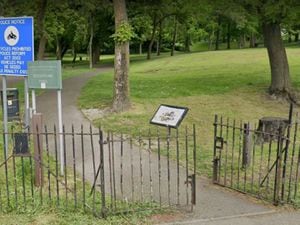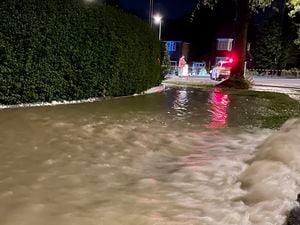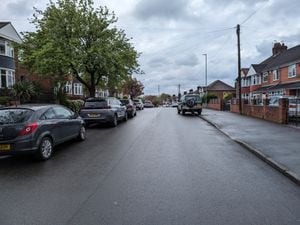Community orchards and micro woods to be created across Walsall thanks to government grants
Community orchards and micro woods are set to be created in Walsall with the help of a government grant.

Walsall Council has launched the project following a £63,000 grant from the Coronation Living Heritage Fund, facilitated by the Department for Environment, Food & Rural Affairs (DEFRA).
The council's healthy spaces team, supported by the generous grant, is now gearing up for planting events at both Reedswood Park and King George V Park.
Efforts have also begun to expand the planting initiative to local schools, with Millfield Primary School in Brownhills being one of the early beneficiaries.
Headteacher Alison Stacey joined the healthy spaces team in planting a vibrant mix of apples, pears and cherry trees on the school grounds.
Councillor Gary Flint, portfolio holder for wellbeing, leisure and public spaces at Walsall Council said: "We are thrilled that this exciting venture to enhance our local environment and strengthen community connections is under way with some fantastic results thus far.
"The King's coronation in May held great significance for Walsall residents, and what better way to pay tribute than by establishing cleaner air and improving our natural heritage, ensuring future generations can enjoy the benefits.
"The generous funding from the Coronation Living Heritage Fund has enabled us to bring a variety of fruit species to different community groups, fostering a sense of shared responsibility for our green spaces."
The council's rewilding officers will provide ongoing support and guidance to volunteers involved in the planting and care of the orchards and micro woods.
Walsall Council is seeking schools, allotment groups and community organisations interested in planting community orchards for the next season of tree planting.
Community members interested in becoming a tree warden should contact Emma Buck at emma.buck@walsall.gov.uk.
It comes as two ‘near-threatened’ species of bees have been spotted thriving at Barr Beacon local nature reserve, thanks to Walsall Council’s ongoing habitat restoration work with Natural England.
The discovery of the Cats Ear Mining Bee (Andrena humilis) and the Cats Ear Nomad Bee (Nomada integra) was made by Aaron Bhambra, a researcher at the University of Birmingham.
It marks a significant milestone, as they had not been sighted locally for decades.
Both species are classified as near-threatened in Britain, making their presence at Barr Beacon even more significant.
Walsall Council began restoring heathland at Barr Beacon 20 years ago using government funding and advice from Natural England.
Now the site is part of a national flagship project – the Purple Horizons Nature Recovery Project, supported by Defra and Natural England.
This landscape-scale project involves several local partners with the aim of creating nature-rich places between Sutton Park and Cannock Chase.
Councillor Gary Flint, portfolio holder for wellbeing, leisure, and public spaces at Walsall Council, said: "The remarkable presence of two nationally threatened bee species like the Cats Ear Mining Bee and Nomad Bee at Barr Beacon is a testament to the efficacy of our continuous efforts in heathland restoration.
“Walsall is proud to be at the forefront of environmental conservation, and the discovery of thriving bee populations serve as a clear indicator of the positive impact of our long-standing restoration program."





